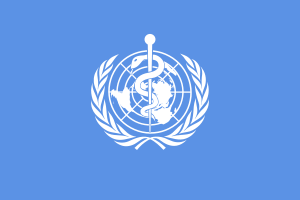 The UN’s high-level conference on HIV/AIDS began [last]Wednesday with fanfare and a veritable parade of delegates, scientists, activists, and UN bureaucrats. In keeping with what is now standard procedure, there was a panel integrating a “gender-mainstreamed” perspective into the discussion: “Women, Girls, and HIV.”
The UN’s high-level conference on HIV/AIDS began [last]Wednesday with fanfare and a veritable parade of delegates, scientists, activists, and UN bureaucrats. In keeping with what is now standard procedure, there was a panel integrating a “gender-mainstreamed” perspective into the discussion: “Women, Girls, and HIV.”
The panelists told the audience with authority and enthusiasm that the answer to HIV/AIDS, particularly among women in Africa, essentially lied in solving other entrenched problems- from reversing harmful gender norms, eliminating violence against women and girls in communities, to ensuring women’s access to sexual and reproductive health services, and even providing comprehensive sexuality education in and out of schools. The session concluded with the consensus that there was a “desperate need to link HIV with sexual and reproductive health programs.”
This approach, which ties AIDS interventions to ideologically-based “human rights” causes is called “bundling” by Dr. Edward Green, formerly of the AIDS Prevention and Research Project at the Harvard School of Health. Dr. Green is an outspoken critic of the “sexual freedom” and harm-reduction agenda in fighting African AIDS, and recently authored a book, “Broken Promises,” which concludes that the only proven effective intervention in African AIDS is reducing multiple and concurrent partnership (promoting sexual fidelity).
“AIDS is a viral disease. Certain sexual habits help it spread, and its critical to modify them. Yet for years, we’ve heard assertions that we can cut HIV infections by reducing poverty, racism, ‘classism,’ and other isms. AIDS workers have hitched strategies like condoms to these glowing causes. Its called bundling. Bundling is understandable to some extent…making people feel satisfaction and camaraderie in fighting sexism, bigotry, hatred, capitalism, and Republican politics.
The results have been devastating. When people tie a [prevention]strategy to an ethically charged purpose, evidence becomes less important. People start promoting the strategy to gain moral credit, and they tend to stop citing its flaws, to avoid attacks. Bundling has been acid to policy..[it has become]hard to focus discussion on the facts. Being anti-condom was seen as being anti-human rights.
Bundling claims should have scared the wits out of AIDS workers. Imagine if we have to remedy poverty or gender inequality before we can prevent AIDS. If we have to make Kampala look like Denver, its hard to guess how many millions more will die.
…
There is no credible evidence that gender inequality, poverty, discrimination, stigma, war and civil disturbances, racism, or homophobia actually drive the epidemic in Africa. Hence reducing these social ills will not reduce HIV infection rates, and the billions spent here are wasted. (Broken Promises, p.91-92)
It is disheartening that the UN system, governmental leaders, and countless NGOs continue to “bundle” interventions for the HIV epidemic with ideologically motivated “human rights” issues like sexual and reproductive health- to the detriment of the interventions’ effectiveness. The immediacy of the AIDS epidemic in Africa, among women, and all over the world deserves serious, evidence-based interventions. To deny the facts and continue to promote ineffective or untested methods of HIV prevention based on social ideologies is worse than bumbling – it’s betrayal.




Pingback: TUESDAY MORNING EDITION | ThePulp.it()